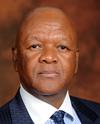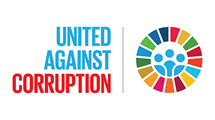By Minister Jeff Radebe
 Corruption is often spoken about in social circles. Most people have an opinion about it and seem to agree that it is on the rise. Anyone reading the previous sentence would assume that we are referring to South Africa. Not so. The reality is, corruption has become pervasive throughout the world.
Corruption is often spoken about in social circles. Most people have an opinion about it and seem to agree that it is on the rise. Anyone reading the previous sentence would assume that we are referring to South Africa. Not so. The reality is, corruption has become pervasive throughout the world.
In May, an anti-corruption summit was initiated and hosted in London by then UK prime minister David Cameron, who said: “Corruption is the cancer at the heart of so many of our problems in the world today.
It destroys jobs and holds back growth, costing the world economy billions of pounds every year. It traps the poorest in the most desperate poverty as corrupt governments around the world siphon off funds and prevent hard-working people from getting the revenues and benefits of growth that are rightfully theirs.”
When one views the most recent global estimates on corruption, there is little doubt that it is rampant. In May this year the International Monetary Fund said that public sector corruption siphons $1.5 trillion to $2 trillion (R20,4 trillion to R27 trillion) annually from the global economy in bribes and costs far more in stunted economic growth, lost tax revenues and sustained poverty.
These amounts are truly astronomical when converted into our currency and reflect a growing international crisis that must be tackled by all governments without fail.
Back home, the fight against corruption is a major priority of government. We are faced with a reality where corruption the private and public sector having a detrimental effect on our ability to deliver effective services to the people.
Also, many people view corruption as something that others do, or as a problem that must be tackled by government. But in effects, corruption affects all of us.
When you slip a traffic officer a R50 to turn a blind eye to your indiscretion that is corruption. So is paying for your driver’s licence or attempting to influence business deals by means of a bribe – or an “encouragement fee,” as some would call it. Every interaction that involves using money or other means to influence an outcome unfairly to your benefit - no matter how small - is corruption.
Sadly, these sorts of interactions happen all too often as many people do not view them as corruption. As South Africans, let us commit to fighting corruption in all its manifestations.
Corruption never begins and ends with one person. We must adopt a holistic approach to fighting this scourge, and deal with the corruptor and the corrupted.
Our actions count; it is within our power to determine how we behave. This point is reinforced in the state’s National Development Plan, which calls for the development of a society with zero tolerance for corruption.
In line with this vision, South Africa is a signatory to the United Nations Convention against Corruption. Since the adoption of this convention by the UN General Assembly in 2003, International Anti-Corruption Day has been observed annually on December 9.
In commemoration of this day – just past we should take stock of our achievements in fighting corruption and reflect on the challenges that remain. This is also a chance to raise public awareness of the need for everyone in society to stand up and be counted in the war against corruption.
We plan to launch an anti-corruption discussion document, which will form the basis for wider consultations regarding the development and implementation of National Anti-Corruption Strategy.
Having national consensus on how we tackle corruption as a society is crucial. It is about getting a set of ideas and norms that we all buy into and fight to protect.
The all-encompassing National Anti-Corruption Strategy which will emanate from the discussion document, which will have the input of government, business, labour and civil society.
It will serve as our joint declaration against corruption in any form and herald a resolute commitment to an ethical and accountable state, and clean governance in business and civil society sectors.
It will also signal a commitment by those in positions of power to act with integrity, while inculcating a society where citizens are aware of their rights and responsibilities, respect the rule of law and are empowered to hold those in power to account.
Government is aware that some may scoff at such lofty ideals, or decry this as yet another plan. Such criticisms are welcomed and will no doubt form part of the national deliberations emanating from the discussion document and the eventual strategy taken.
This process is not happening in isolation. It will strengthen our existing anti-corruption arsenal. This includes the adoption of a Code of Conduct for the Public Service, as well as the establishment of specialised anti-corruption units such as SAPS Organised Crime Unit.
These are further complemented by the Directorate of Priority Crimes, AKA the Hawks, and the Asset Forfeiture Unit in the NPA which including the Financial Intelligence Centre.
Our efforts are further enhanced by Specialised Commercial Crime Courts and the creation of the national and sectoral anti-corruption hotlines.
These exist alongside the Anti-Corruption Task Team, which was formed to fast-track investigations and prosecution. Furthermore, we have coordinated the work of state organs combatting corruption in the public and private sectors through the Anti-Corruption Inter-Ministerial Committee.
These actions in fighting corruption ultimately ensure that we move South Africa forward. But we require the help of all South Africans. The fact is, that corruption cannot flourish if we all take personal responsibility to stop it.
Government appeals to all sectors of society to get involved in the drafting of the National Anti-Corruption Strategy. Let us make it our blueprint for a country that has zero tolerance for corruption.
Jeff Radebe is the Minister in The Presidency





